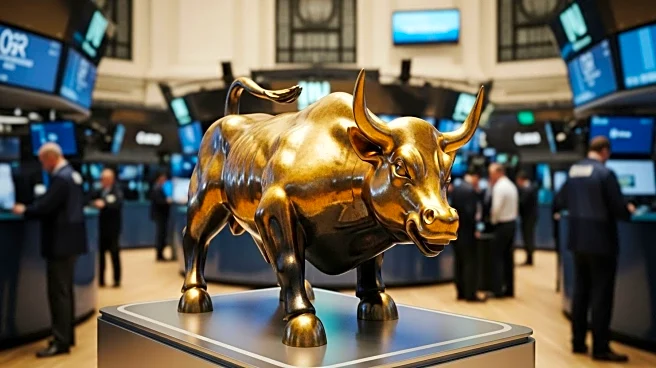What's Happening?
Despite President Trump's imposition of 50 percent tariffs on India, the country's stock market has shown resilience, with the main stock indexes in Mumbai rising by 10 percent over the past six months. This growth is attributed to the increasing participation of Indian investors, who are compensating for the withdrawal of foreign investments. The shift highlights the growing confidence of India's middle class and the strengthening of its domestic financial sector. Foreign ownership in India's stock market has decreased from 24 percent to 16 percent over the past decade, indicating a significant change in investment dynamics.
Why It's Important?
The ability of Indian investors to sustain stock market growth amidst international economic pressures underscores the robustness of India's domestic financial sector. This trend could lead to reduced dependency on foreign investments, potentially insulating the Indian economy from global trade conflicts. For U.S. businesses, this development may necessitate a reevaluation of strategies in dealing with Indian markets, as local investors become more influential. The tariffs, intended to pressure India economically, appear to have had limited impact, suggesting that domestic investment can play a crucial role in economic stability.
What's Next?
As Indian investors continue to bolster the stock market, U.S. policymakers and businesses may need to consider alternative approaches to engage with India's economy. The ongoing trade tensions could prompt further diversification of investment strategies by Indian investors, potentially leading to increased innovation and growth within the domestic market. Monitoring these shifts will be essential for stakeholders aiming to maintain or expand their presence in India.
Beyond the Headlines
The rise of Indian investors could signal a broader trend of emerging markets strengthening their domestic financial sectors, potentially altering global investment patterns. This shift may encourage other countries to develop similar strategies to mitigate the impact of international trade disputes, fostering a more resilient global economy.









